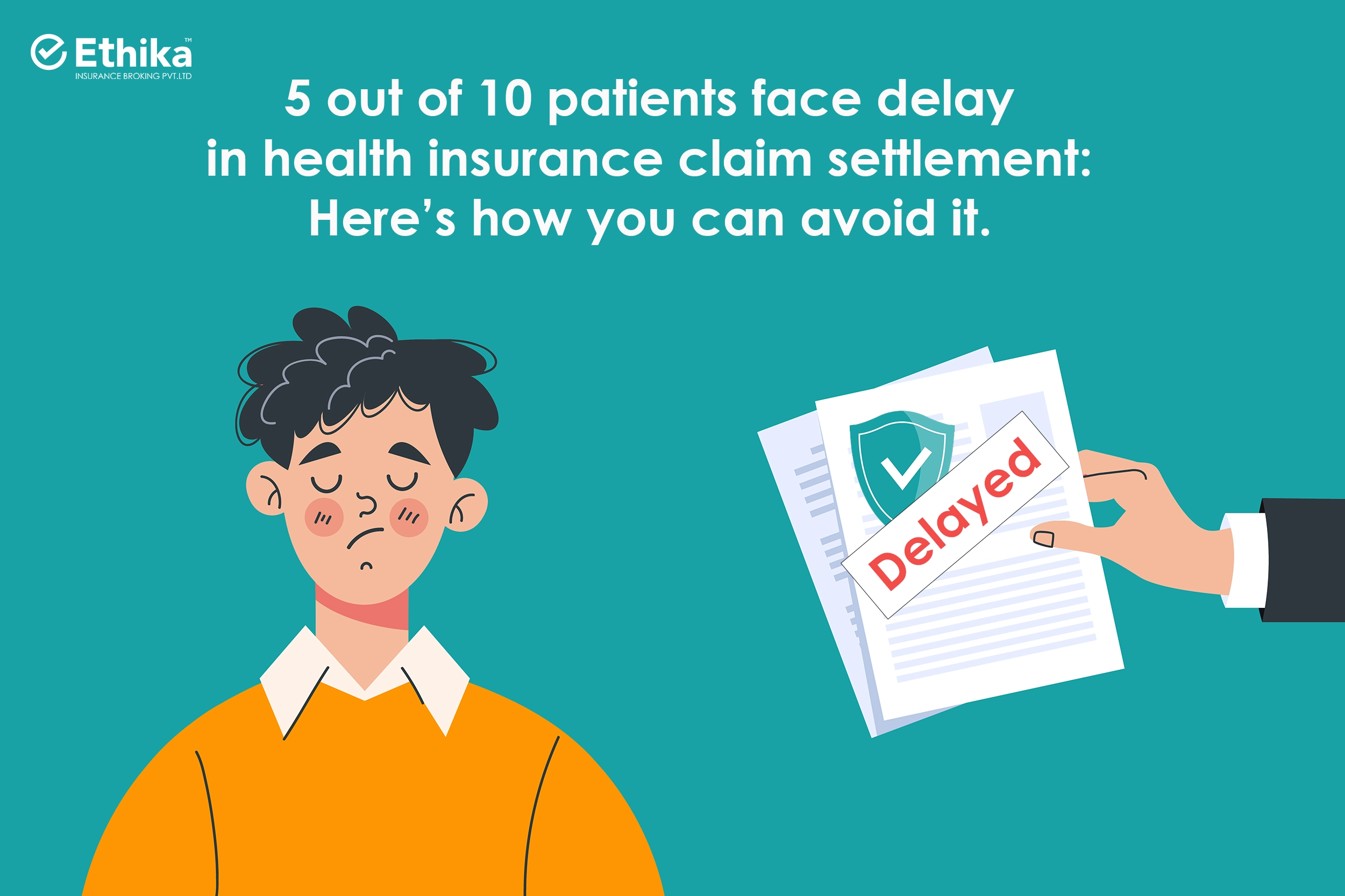
The latest report from Pristyn Care highlights that 5 out of 10 patients face hospital discharge delays due to the time taken by the cashless claim settlement process in a health insurance plan. The study also points out that 40% of the delays are attributed to the administrative process in the hospitals. The major challenges claimants face are the cumbersome paperwork and the unresponsiveness of the hospital staff when it comes to insurance.
As per the report from IRDA, around 49% of the hospitals in India provide cashless services, and each Insurance company has its own impanelled hospitals that offer cashless claim settlement facilities for their customers. IRDA is working to introduce a nationwide cashless hospital network that would be common for all insurers. This would address two key issues – the time taken in the cashless claim settlement process and the other bringing more hospitals under cashless mode, which would ultimately benefit the policyholders.
You or your family members might encounter a similar situation at some point and should be aware of how to avoid it.
What’s on this page?
Let’s Discuss Reducing the Delay in the Cashless Claim Settlement Process
Submit all Documents in Time
The first thing you must do when going for a cashless claim is submit all the documents in time. In the case of cashless, it would be the original policy document or the health card provided by your insurer. In reimbursement claims, you should submit the required documents simultaneously instead of submitting them in parts. It is important to understand that your claim will be put on hold even if one required document is delayed in submission.
Therefore, it is important to share all the required documents simultaneously, as mentioned in the claims checklist available with the insurer.
Pre-planned Treatment
Pre-planned treatments are those where you decide the date of treatment and the hospital to get treated. In such cases, you should inform your insurance company at least 48 hours in advance so that they can coordinate with the hospital and provide cashless approval before your admission. The main aspect of a cashless claim is the claim approval from the insurance company, which generally takes some time.
If an intimation is given to the insurance company in advance, they may even try for a cashless claim settlement in a hospital that is not impanelled on their network. Of course, informing the insurance company in case of emergency claims would not be possible, but it could be very well done in pre-planned treatments.
Follow-up & Escalate
People usually ignore the follow-up with the hospital’s insurance desk. If you have a corporate group health insurance plan, you would have at least 3-4 touchpoints to follow up and move the claim to the next stage.
For example, if you have group medical insurance, you may contact your Human resources team, third-party Administrator (TPA), Insurance Intermediary, such as an insurance broker, and finally, the hospital staff. In most cases, the approval for cashless claim settlement is delayed; hence, you should ensure that the approval comes as soon as your treatment commences.
Take Help From Your Intermediary
You may need the help of an insurance intermediary at the time of claim settlement. You may contact your insurance intermediary, who will likely follow up with the insurance company and the hospital for claim settlement.
Some insurance brokers, such as Ethika Insurance, offer a red-carpet claim settlement facility. In this facility, the policyholder only needs to fill out and submit the claim form, after which the broker will handle the entire process. The intermediary would understand the process very well, have seen many such situations, and would be able to handle it well.
Educate Family Members About Insurance
Insurance education is still nascent in India. Most people do not even share their insurance details with family members, let alone the claim settlement process and contact points in case of a claim. As the head of the family, you might take care of your family members’ hospitalisation requirements. Still, your family members should also be well informed to take care of the claim settlement process in case you get hospitalised.
For this, you may share the contact details of the insurance company, agent, and third-party administrator handling your account. In case of an emergency, they would coordinate with all the concerned parties and work towards reducing the claim settlement time.
FAQs:
What is cashless approval?
A cashless approval is a go-ahead given by the insurance company to the hospital to proceed with the cashless claim settlement facility. Without a cashless approval, the hospital would force you to bear the hospitalisation expenses.
What documents are to be filled in to avoid a claim delay?
The main document to be filled out in case of a claim is the claim settlement form. It is important to complete the form and include all the details you know, as ignoring any detail may delay the process.
What is IRDA doing to reduce claim settlement time?
The Insurance Regulatory and Development Authority of India is working with the General Insurance Council to create a network of hospitals that all the insurance companies in India could utilize. This would reduce the hassle of insurance companies tying up with hospitals individually, ultimately increasing the claim settlement time.
What are the things that I should keep available for hassle-free claim settlement?
Here are the things you should keep available at any time for hassle-free claim settlement:- Original policy document Health card (if any) Escalation Contact details of Third party administrator (TPA), Insurance company, and Insurance agent.
How do we deal with unresponsive hospital staff in case of a health claim?
Hospital staff are generally very responsive. However, they may sometimes be unresponsive. In such cases, you should follow up with them continuously and escalate to the hospital management if need be.